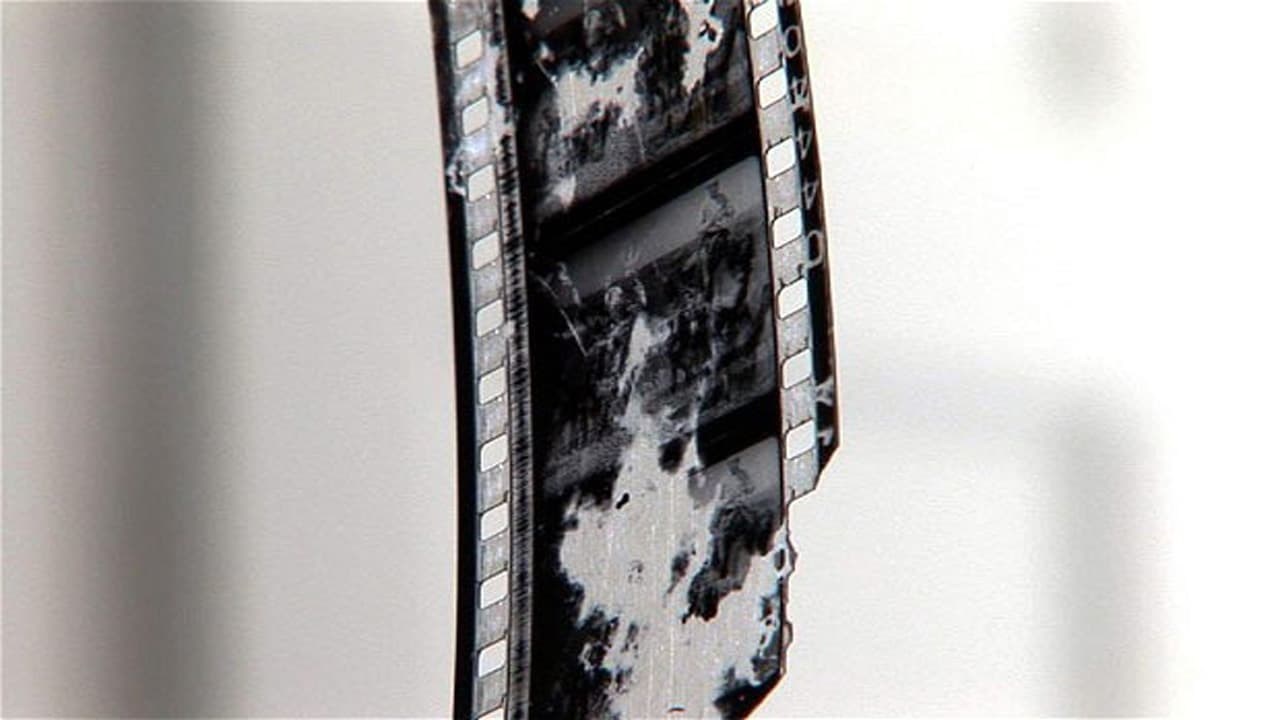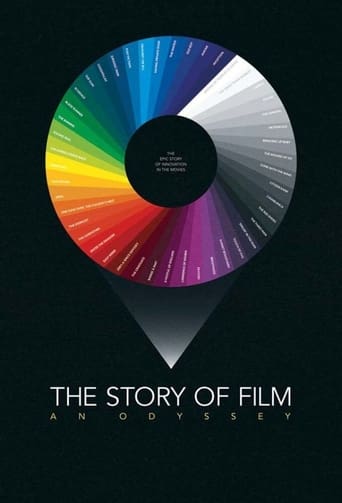Incannerax
What a waste of my time!!!
Jeanskynebu
the audience applauded
SeeQuant
Blending excellent reporting and strong storytelling, this is a disturbing film truly stranger than fiction
Skyler
Great movie. Not sure what people expected but I found it highly entertaining.
H Lkkkkk
Utterly sublime! Quite simply the most informative, most entertaining, most sumptuously produced documentary on the history of film ever made. And that includes the effort by critical darling Jean-Luc Godard! Not only is Cousin's as fervent a fan of cinema as you're likely to find anywhere, but he is also extraordinarily knowledgeable and therefore informative and really does, as he says, redraw the map of cinematic history. His refreshing retrospective of this particular art's great history is careful not to adhere to the usual hero-worshipping of Hollywood cinema (though it's icons get their due!) as well as avoiding the obvious narrow-mindedness in believing that cinema's only icons are wealthy, white, middle-class Americans or Europeans (though once again, those deserving from this category are indeed rightly praised). The one major criticism I've hear regarding this series is that Cousins' voice and unusual intonation can be slightly grating. I will admit that it is not a particularly traditional narration as far as documentaries go, but personally I find his truly unique way of framing his subjects in a gentle, almost inquisitive way (helped of course by his dulcet Belfast accent!) to be both informative and comforting, making me feel that the man making this film is on my level, not haughty and superior, guiding me through a subject about which he and I are both passionate. It puts me in the mind of the documentaries of Werner Herzog, whose tranquil Teutonic tones might be describing something totally terrifying or unfathomable, but somehow still put me at ease and make me feel as if I am on his side.In short, an absolutely wonderful film, and a must watch for anyone who has even the slightest interest in the history, the creation of or simply the enjoyment of cinema! 10/10
mwakee
While I can abide Cousins' anti-Hollywood viewpoint and I can abide the political slant to his series, I cannot abide his trumpeting of the film Hyenes directed by Djibril Diop Mambéty, without even mentioning that it was based on a play by Swiss writer Frederich Durrenmatt. Not only that, but there was a previous film version, The Visit, directed by Bernhard Wicki in 1964, starring Ingrid Bergman and Anthony Quinn. While Mambety created a brilliant film, he did not pull this film out of a vacuum by himself. It was an adaption and Cousins should have made us aware of this fact. It calls into question the veracity of the entire series, which I had enjoyed up until now. I'll need to watch the rest of the series with a far more critical eye.
adam wardknott
If what you want is an obvious western view of the history of film narrated by, say, Patrik Stewart, don't watch this. Cousins Ulster brogue requires a little getting used to and much of this is his (well informed) personal opinion, but if you can stick with the low budget, stylised camera work and editing it is a joy. The descriptions of various styles of cinematography and editing as opposed to film text and meaning is inventive and informative, very different to the often imposed micro analysis you get from film studies text. I loved hearing cousins say things like "...deep space, shallow focus...single take, no fast cutting..." I soon found myself looking at films thinking Cousin-like about what I Was seeing on screen.I learnt about how different directors and cinematographers influenced each other, how styles emerged, faded, and reemerged. How new directors from different countries, influenced by Hollywood, reshaped those ideas and created new personal films reflecting the psyche of their own nations. Cousin's odyssey is like a poem, his narration is often abstract yet personal. But it is exciting and informative, a different take on a subject history that all to often is written in stone. Refreshing and far from obvious this deserves far more respect than some people give it.
mistarkus
This documentary is a bold, encompassing lengthy journey into film history. By delving into movies he deems to be monumental and the particular scenes that make these movies monumental we are granted a very subjective interpretation of film history. It is not simply a history lesson in film. The chronological documentary is the creator's expression of how he views films and is therefore a work of art in and of itself. Wonderful to enter this man's portal into film since it exposes us to not only movies we never heard of but gives us an expert's view of what makes certain film's and scenes so important. It is innovation that is important and innovation which becomes influential. He sometimes emphasizes world cinema perhaps influencing the great American film makers. He'll choose to show a particular scene from a movie and go into the lighting, the camera strategies, the technology, the atmosphere created, the acting, the writing, the political and sociological situation of the moment when made....everything. He wonderfully makes it long so we can get deep into this. We might not agree on quite the level of importance he imparts on particular films but we can sense he is a passionate expert with a hyper-awareness. This creates a rich tapestry for us to soak in and will enrich our artistic souls and how we will forever see a movie in the future. By delving so deeply into film history it actually goes into a bit of world, cultural and politically history. It is a minor travelogue as well with some nice scenes of the foreign lands. The maker feels films reflected the time and place in which they were made. Sometimes as essences and shadows of the era and locale and other times rebelling against it. Film is both impacted by culture and politics and film can also even influence and change society. A lot of films that we love might shockingly only get mentioned for a mere minute. I felt that perhaps the Godfather and Lawrence of Arabia were more influential and deserved more time in this lengthy tapestry of film history. But every other documentary on film has berated us with how great these movies are. We already know it and can see documentaries just on the making and symbolism of these films or these great American filmmakers. The exposure to the rest of the world is one of the great achievements this documentary accomplishes. There are a billion people in India where the movie Shoaly played for 7 years. It had a profound impact on that country of a billion plus and I never heard of it until I saw this documentary. Perhaps Shoaly might be more influential to more people and the world than my favorite movies are. There are still whole episodes dedicated to films made in the United States. There is an episode that went into American movies from the 70s. There is a whole entire episode on Hollywood in the 1920s. Despite being a documentary about world cinema the US still is the largest country represented in the story of film. The most amazing part is his understanding of the artistic and political expressions emanating from particular scenes. Absorbing his critiques and commentary on film can gave not only a new way to look at film but a new way to look and think about many different art forms. Things that can do this are the greatest things ever created.

